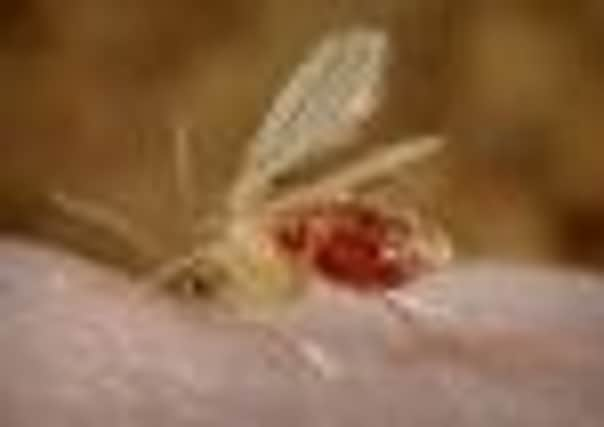Discovery could save tens of thousands from tropical disease


• Edinburgh University scientists have discovered a compound which could stop the spread of leishmaniasis, a deadly tropical disease
• Leishmaniasis kills approximately 50,000 per year and causes serious facial deformities
Advertisement
Hide AdAdvertisement
Hide AdExperts at the University of Edinburgh have proved that a saccharine derivative successfully kills off the parasite that causes leishmaniasis, a tropical infection leading to illnesses including Black Fever, which results in horrific facial deformities and kills around 50,000 people, mostly in India, each year.
The treatment works by blocking the action of a crucial enzyme in the leishmania parasite, preventing it from converting glucose into energy to keep the tiny organism alive.
Researchers said the development could also bring new treatments for sleeping sickness and Chagas disease, which are caused by two related parasites and affect millions of people across Africa and South and Central America.
And because the enzyme, called pyruvate kinase, is common in people as well, experts hope the discovery could be used to develop new drugs to combat cancer by killing off tumours.
The research team’s findings come from a joint study with the National Institute for Health in the US which tested 300,000 possible drug molecules to identify those that were most effective. Results showed that the saccharine compound, known as DBS, had successfully disabled the enzyme.
Professor Malcolm Walkinshaw, of the university’s School of Biological Sciences, who led the study, said: “By testing thousands of possible compounds, we have identified an interesting way to block a crucial function of this parasite. This could be used in developing a new class of drug against this dangerous and disfiguring disease.”
He added: “These three parasites all get into people’s bloodstreams through insect bites and the diseases they cause are regarded as neglected because the current availability of decent drugs is really poor.
“Leishmaniasis is very disfiguring – it can cause facial scars which are pretty horrific – and if it gets into the liver, it’s deadly.”
Advertisement
Hide AdAdvertisement
Hide AdExplaining the possible implications for treating cancer, he added: “These parasites and tumours share the same need for lots of glucose so if we can target the same sort of compound at tumours, we can specifically kill the tumour cell because it completely relies on glucose.”
The study was published yesterday in the Biochemical Journal and supported by organisations including The Wellcome Trust.